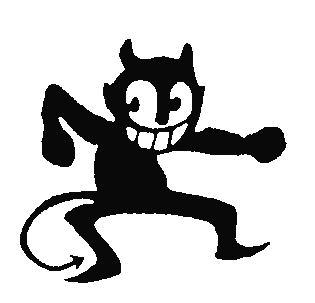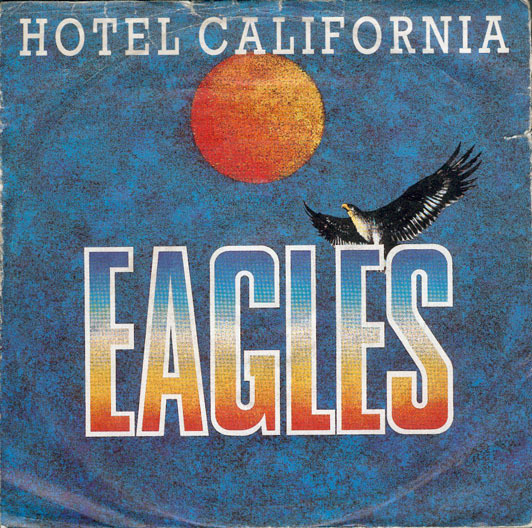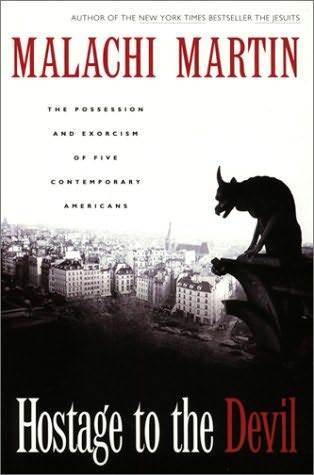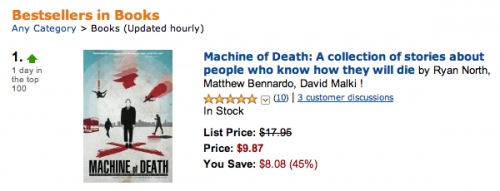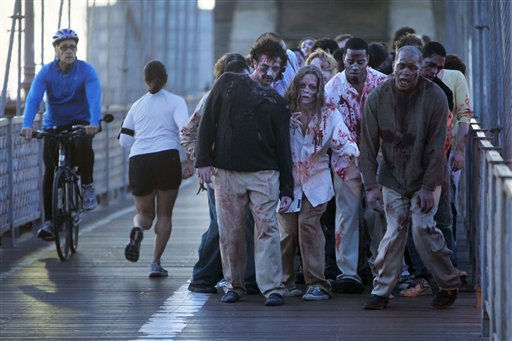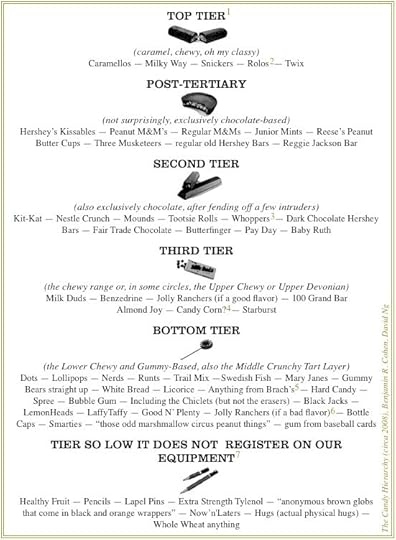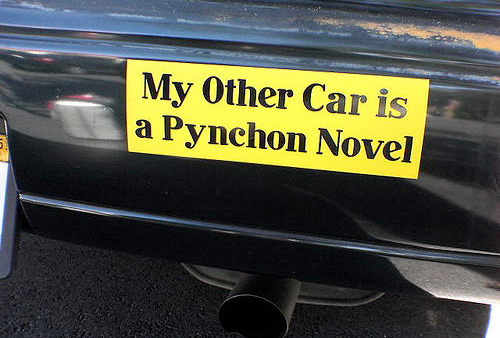Christopher Farnsworth's Blog, page 19
November 5, 2010
That Was The Week That Was
Hey. It's Friday. Wow, that whole week sure happened, didn't it?
Microsoft's Kinect game system isn't racist; it just has trouble in the dark. I think I saw this on "Better Off Ted." Alternate joke: Yeah, that's what Mel Gibson said. Alternate alternate joke: Yeah, but you should hear Mario when he goes off on the Jews. I could go on.
Do not piss off the Internet. Cooks Source magazine tried that, and look what happened next.
Speaking of plagiarism, I stole this cartoon off Salon, which may have stolen it off someone else. It's pretty much the saddest thing I've ever seen today:
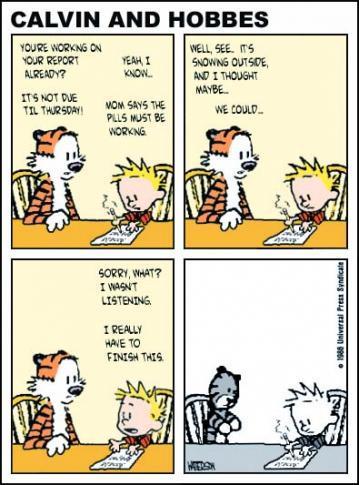
Hey, did you know Bruce Wayne pays for all Batman's stuff? Now everyone in Gotham City does, too.
My pal Leslie Gornstein wrote an article about a dibbuk box. Sam Raimi is making it into a movie, and now there's a director and a release date. It's still a year away, but I'm buying my tickets now.
What else Meg Whitman could have done with all that money.
I enjoy reading the reviews of "Community" on the AV Club almost as much as I do watching the show.
By the way, new Elvis Costello album hit this week.
A little late to this, but the Harpies are looking for a new member of their coven. Sharp claws a plus.
Insanely detailed map of the events in The Walking Dead. (via the AV Club, which is where all my ideas come from, apparently).
#tweetyour16yearoldself – if Twitter worked like a time machine, what would you tell yourself? Aside from "invent Twitter," I mean. My best advice to myself back then? "Read more. Drink less."








November 2, 2010
Hold Your Nose And Vote
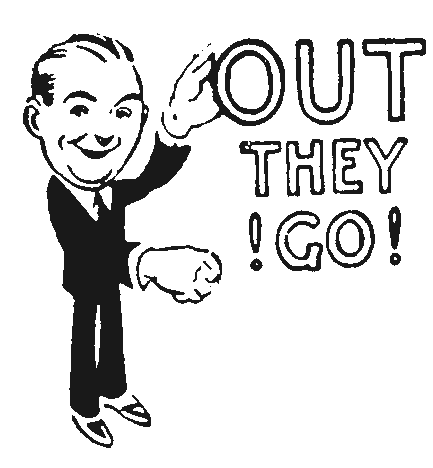 Election Day. I try not to write about politics anymore, except when I'm mixing it with vampires. But the old junkie in me surfaces as we get closer to November, and I spend more and more time reading political stories, shortening my life expectancy with each aneurysm-building line.
Election Day. I try not to write about politics anymore, except when I'm mixing it with vampires. But the old junkie in me surfaces as we get closer to November, and I spend more and more time reading political stories, shortening my life expectancy with each aneurysm-building line.
This year, I received Matt Taibbi's Griftopia in the mail on Saturday, and though I'm only halfway through it, I'm feeling less inspired to vote than ever before. Basically, Taibbi lays out the case that no matter who we put into office, the country will continue to be run by a series of con artists intent on wrecking America and stealing the copper plumbing to sell for scrap.
It's not a cheerful picture, but it's hard for me, at this juncture, to disagree. The sideshow is more entertaining than ever — Tea Parties, hookers, Palinisms, witchcraft, shoving, head-stomping — but it matters less and less. As Taibbi says in an interview with the AV Club:
For the purposes of this stuff—the rules of the financial-services industry and how the economy works—elections just don't decide a whole lot, because 90 percent of it is done in these rule-making sessions that take place outside of Congress. The few things that are debated in Congress, the two parties tend to be more or less in line on most of the issues. What we saw this summer with the financial-reform bill that got passed—they basically didn't touch about 90 percent of the stuff that made up this crisis. So, yeah, obviously elections are important, because a lot of other issues get decided through elections, but on this particular stuff, the stuff involving money and how the economy works? There isn't a whole lot of change, no matter which way they vote, which is the really depressing thing.
Still, I went to my polling place. Everyone there was cheerful and friendly and helpful. I voted, even though the registrar had somehow misplaced my address for the third year in a row.
You might ask why. I'm sort of wondering myself. Call it stupidity or stubbornness. Or patriotism. Or years of elementary-school indoctrination.
At this point, I prefer to think of it as an act of faith. I put my trust in people to rise above themselves at the most outlandish moments, to work together in defiance of all rational sense, and occasionally, I am rewarded. Occasionally, there will be firefighters who run back into a burning building, or cops who risk their lives to save another, or teachers who refuse to give up on their students despite insults to their dignity and safety. This is the real religion of America: the belief in America itself; the idea that, despite everything, we can be just like the smiling people in the civics textbooks. I have to believe, despite all the evidence to the contrary, we can be great and kind and just. Maybe we don't have anyone on the ballot who remotely resembles those qualities right now, so just the act of voting will have to sustain us until they show up.
Until then, we'll all just muddle along as best we can.








October 29, 2010
Halloweek, Day Five: Could It Be Satan?
Today, I can watch most horror movies and laugh them off. In my teens, I saw all the Friday the 13th movies and rooted for Jason. But the ideas of Satan, of demons, and possession… yeah, that's not funny.
My mom raised my brother and me as fundamentalist for a time. I'm not sure how much it affected him — he was seven or eight — but I bit down on it hard. I was a fervent, devout little believer. I had a Sunday School teacher who told us how the Devil once appeared at the threshold of her bedroom door. While this would make more sense once I finally read Freud, at the time, I believed in the physical reality of Satan; I believed in it as much as I did gravity or weather.
This had consequences.
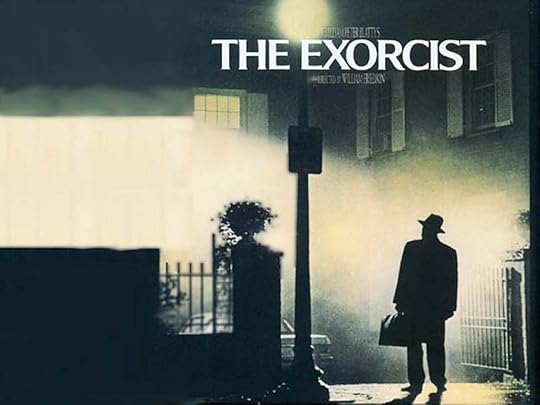 My father did not go along with us on our trips to church. Which is why, perhaps, for reasons known only to himself, decided it would be OK if I watched The Exorcist with him when it was first broadcast on network TV. I was about nine. I don't remember much about that night, except for the Vietnam-type flashbacks I get whenever I see the movie listed on the channel guide.
My father did not go along with us on our trips to church. Which is why, perhaps, for reasons known only to himself, decided it would be OK if I watched The Exorcist with him when it was first broadcast on network TV. I was about nine. I don't remember much about that night, except for the Vietnam-type flashbacks I get whenever I see the movie listed on the channel guide.
I was actually starting to get into horror movies — especially the cheesy sci-fi kind — when Satan struck again. I was 12 or 13, my church youth group got a lecture from an expert on "back-masking." Randy, my best friend then and now, listened to Motley Crue and had a protective armor of sarcasm and irony. He knew it was bullshit. I didn't. I remember all the blood draining out of my head, feeling nauseous, and leaving the room. One of the youth group leaders followed me to another classroom. I was climbing the walls. Here was this massive Satanic conspiracy, and everyone else just sat there. How could anyone rest when the Devil was infiltrating our brains? He tried to calm me down. Just as I was starting to feel better, however, he launched right into the entire spiel again, telling me all the hidden messages glorifying Satan in the works of even most innocuous groups. The example he gave was "Hotel California."
Great. I was going to Hell because I listened to the Eagles. Seemed a bit harsh.
I got over it, eventually.
But as an adult, there's only one book that I've actually had to put down (and then, put under another book) due to outright fear: Malachi Martin's Hostage to the Devil.
It's a supposedly true account of modern-day exorcisms by a former Catholic priest, and it is unbelievably terrifying to a lapsed fundamentalist like myself. Martin is a talented and intelligent writer — for the most part, everything is delivered deadpan, with a calm acceptance that makes the subject all the more eerie. Satan and his minions do things that are vicious and quite tangible — this isn't the namby-pamby kind of exorcism you'll see in some churches, the ones where they wrestle with demons of obesity or gossiping or infidelity. These are monsters that lurk inside the eyes of real people, drowning all that is good and human in them. Martin writes that the primary motivator of these demons is hatred: they despise us for the simple fact of our existence.
Today I read and watch all kinds of truly disturbing stuff, both fiction and non-fiction. If it's really great, effective story-telling, it will haunt me for a while, likeThe Mist (story and film) The Ring (which was partially filmed at my old employer, the Orange County Register; is like, 19 inches tall in heels). Some movies key into my particular phobias and kinks so effectively that I can't even watch them, no matter how fantastic everyone tells me they are (I'm looking at you here, Slither. Sorry.)
Obviously, I'm no longer a fundamentalist. And I don't scare as easy as I used to. I don't believe the line that Halloween is a demonic trick to sucker children into devil worship. (If you don't like celebrating pagan holidays, I have some bad news for you about Christmas.) I'm currently in the middle of a bunch of research on Satanic cults and cult-related murders and conspiracies, which is probably why this is on my mind this Halloween. In my free time, I've been reading Gillian Flynn's Dark Places, about a woman who's the sole survivor of a Satanic massacre allegedly committed by her brother. While my research is gruesome, and Flynn's novel is excellent, neither one gives me nightmares.
But if you think I will so much as touch Hostage To The Devil anywhere near Oct. 31, you are out of your freaking mind.
If you'll excuse me, I'm going to go bury my copy under a couple more books.








October 28, 2010
Halloweek, Day Four: Real Zombie Virus and more
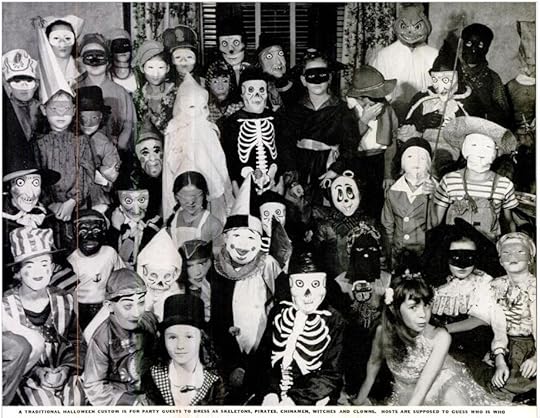
A bunch of Halloween-related news I've been saving:
Could it be possible to create an actual zombie virus? Well. Maybe. More like 28 Days Later, not so much Night of the Living Dead. Either way, I'm sure I'll obsess about it tonight.
I am really impressed that nowhere in this story about chocolate fangs does the author use the phrase "candy that can bite back." Because honestly, I could not resist a temptation like that.
Interview with Frank Darabont, producer of "The Walking Dead" TV show.
Candy: delicious treat or gateway to Satan?
Wealthy socialites tried to voodoo-curse Hitler and Life magazine was there.
Halloween episode of "Community" tonight on NBC. Gratuitious shot of Annie and Britta here.








The Greatest Story Ever Told*
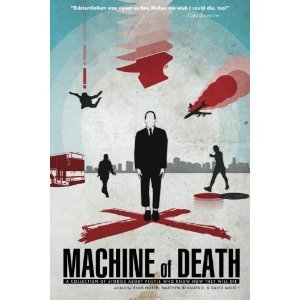 David Malki is a very funny, smart and talented guy who does a great comic strip called Wondermark. It's one of the few things that makes me actually laugh out loud, as opposed to just saying or typing it. (He's actually a very nice guy, too. I've met him a couple of times, and he always remembers to pretend to remember me.)
David Malki is a very funny, smart and talented guy who does a great comic strip called Wondermark. It's one of the few things that makes me actually laugh out loud, as opposed to just saying or typing it. (He's actually a very nice guy, too. I've met him a couple of times, and he always remembers to pretend to remember me.)
Malki and a couple of his partners in crime, Ryan North and Matthew Bennardo, have edited an anthology of short fiction called Machine of Death. If you've ever sat through a writer's workshop, you know that publishing does not smile on short fiction these days. There is almost no market anymore, and so, no budget for promotion or advertising. Most short fiction anthologies sit quietly on the bottom shelf, which mirrors their rankings on bestseller lists.
That was before Malki and co. harnessed the awesome power of the Internet. They asked, via Twitter, everyone to help them push their book to the top of the Amazon Bestseller List.
But that's not the amazing part (while it does fill me with jealous rage). The amazing part is, somehow, the appearance of a book with the word "death" in the title angered Glenn Beck, whose own book, Broke, was also for sale on Amazon on Oct. 26. And Beck, having his own media empire, called on his followers to rectify that situation.
War ensued. Keith Richards wandered in and mucked things about, somehow, but today, the war rages on.
It's the kind of publicity a major publishing house would murder a grandmother for. The book is still in the top three top ten at Amazon. In all honesty, I hope it stays there for months, and Malki, North and Bennardo make enough money to fill garbage bags with $100 bills to use as beanbag chairs. On the days you doubt your own crazy schemes, remember this: if three guys with an idea based on talking dinosaurs can do it, then what on Earth is stopping you?
*Well, if not the greatest story ever told, certainly in the top 15.








October 27, 2010
Halloweek, Day Three: The Weird Nostalgia Of Zombies
Halloween Night will feature the premiere of "The Walking Dead," which will no doubt scare the crap out of millions of people. Just from the trailer, it looks fantastically engaging and well-made.
AMC is going all out to promote the show, including sponsoring a "zombie invasion" that hit several U.S. cities yesterday.
AP Photo/Seth Wenig
The Zombiepocalypse still ranks as one of our most persistent nightmares, and shows no signs of dying — Ha! Wordplay! — any time soon. All the other apocalypses waiting in the wings still can't match the terror and spectacle of the idea of the dead rising to feed on the living.
But I'm struck by the shift in tone in the tales of the zombie hordes these days. George Romero's Night of the Living Dead was an intense, moody, claustrophobic film. The ghouls were a relentless tide against the humans stuck in the house, and the film's stark black-and-white matched the inevitable conclusion of death and despair. Put simply, nobody was having any fun inside the movie.
That changed with Sam Raimi's bleakly funny Evil Dead 2. The Deadites in that movie might have been ravenous beasts of a hellish necroworld out to devour the flesh and souls of the living — but that didn't mean they weren't occasionally hilarious. And the fact that they were defeated by a retail clerk with a chainsaw was a pretty cheerful sign. It said the Zombipocalypse might be lethal, but it would at least be interesting.
That's part of the reason I love two of my favorite zombie stories, World War Z and Zack Snyder's remake of Dawn of the Dead. Both WWZ and DOD get weirdly and deeply specific about spread of the plague, like a PowerPoint on vectors of zombie infection from the CDC.
There's also something inconsequential about all the zombie hordes. In DOD, I was terrified for the safety of a dog sent as a messenger through a crowd of the undead — but laughed out loud at the survivors driving golf balls at the undead heads in that same crowd. This might be due to the fact that I'm just kind of a sick bastard, but I know I wasn't alone when I was laughing. As in Shaun of the Dead, the zombies are meant to be shuffling targets; you could do whatever you wanted to them. (Only in Romero's movies, as cheesy as they can be, do I get an idea of the undead as victims who are as unlucky as the human survivors.) It's Us vs. Them at its most basic.
There's a weird kind of hope in the zombie movies as well. It's almost like a sigh of relief once the planet has been wiped nearly clean of humanity; as if we can look at Armageddon finally arrived and say, "Well, thank God that's over." Another imperfect metaphor: it's like ripping off the band-aid in one quick swoop. Sure, it's painful, but it beats hell out of that slow, torturous peeling. And hey, look — underneath, that's fresh clean skin. My friend Glenn pointed out I Am Legend — which features Will Smith roaring down the deserted streets of Manhattan in a brand-new Mustang — actually makes being the sole survivor of the end of the world look sort of fun. In World War Z, the planet is inarguably better off after the zombie war — everyone is a little sadder but wiser and more compassionate. There's even cream soda in the new world, so it's not all bad news. It's the idea of a fresh start after a horrible, lingering illness — that just happened to end with rotting corpses walking around chomping on friends and neighbors.
There's a lot of this sentiment mirrored in our culture right now. People talk about a coming revolution, or the attack of the New World Order, with teeth bared in a too-wide smile, as if they can't wait for the shit to finally hit the fan. It's an understandable impulse. When things are uncertain and scary, it feels good to have an identifiable, clearly evil enemy.
But it seems like that's yesterday's news in zombie evolution now.
I've read the first volume of Robert Kirkman's The Walking Dead, on which the AMC series is based. I admit, I'm not very far into the book, and haven't even seen the show yet, but it seems different, despite all it has in common with its predecessors. Unlike previous zombie tales, there's no joy in smashing zombie skulls; one of the infected is even allowed to turn quietly in a hopes of a kind of reunion with his undead family. There's also no real joy in the rebirth of the world. Everyone looks around at the ruins of civilization with the dazed expression of a driver after a car crash. The protagonist, Rick, a former small-town sheriff, is a perfect lens to view the end of the world. Decent and pragmatic and uncommonly brave, he focuses on what's in front of him. Most important, he is resigned to the fact that the old world is gone and it's not coming back.
That's the thing I feel most strongly when looking at the abandoned skyscrapers, the dead tank in the city streets, the discarded and empty cars on the road: regret. The dead might be up and walking, but this world is still in mourning. And I can't help but wonder what that says about us, right now. I wonder what it means that we're already rehearsing the funeral for the world where we live.








October 26, 2010
Halloweek, Day Two
A handy guide to filling your sack with only the best this year. The Candy Hierarchy, via BoingBoing:








October 25, 2010
Halloweek, Day One
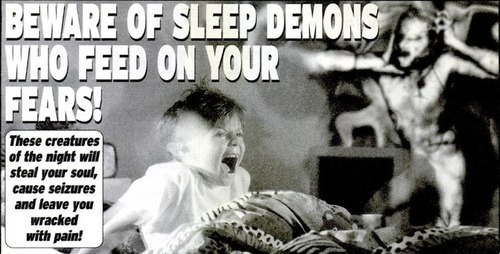 I admit, I don't love Halloween the way I did when I was a kid. I don't spend hours trying on the rubber masks in the costume aisle at the drug store anymore, and I don't stay up late with the monster movie marathon. Don't get me wrong: I still love it, but it's not marked with a big red circle on my calendar anymore.
I admit, I don't love Halloween the way I did when I was a kid. I don't spend hours trying on the rubber masks in the costume aisle at the drug store anymore, and I don't stay up late with the monster movie marathon. Don't get me wrong: I still love it, but it's not marked with a big red circle on my calendar anymore.
Which is sort of sad, because it seems like everyone else in America has finally gotten into the habits that made me weird and strange back then. Paranormal Activity 2 opened with the biggest box-office gross of any horror movie ever this weekend. There are at least seven ongoing series with the word "paranormal" in their titles; that doesn't even include shows like "Fringe," "The Event," "Supernatural," "The Vampire Diaries," and all the rest that feature monsters, conspiracies and mad scientists. And one of the most anticipated new fall TV shows, "The Walking Dead," will premiere on Oct. 31, and it's expected to draw huge audiences, even though my pal James Hibberd describes it as "the most gory series ever to air on TV."
These are high times for a horror fan. I was a guest on a talk show a couple weeks ago on Minnesota Public Radio, the home of Lake Woebegone, talking about the reasons we're all so enamored of the undead now. I heard the question a lot when I was on my book tour as well, and for me, the answer seems pretty simple: people are scared. And when they're scared, they want to tame monsters. Scary stories — whether in books, or horror movies, or TV shows — are the way we confront fears that are too big for us in the real world.
A lot of other people have already pointed this out. In the 1950s, people were terrified of Soviet hordes overseas and hidden Communist moles in America, so the theaters were booked with invaders from Mars and body snatchers.
Sixty years later, many of the ideas we only saw in horror movies in the past have become part of the everyday culture. There are significant numbers of people in America who believe we've got an Antichrist Manchurian Candidate in the White House; that there's a secret conspiracy waiting to round up citizens and place them in hidden underground prisons; that blood-drinking humanoid lizards are manipulating all of humanity.
If that's what people are scared of in real life, then hordes of zombies and vampires are practically comforting. At least those can be slain with a stake to the heart or a sharp blow to the head.
This is why I chose to meld the paranormal and politics, the War on Terror with the War on Horror. There's probably a reason Halloween is so close to Election Day: they're both the times when our fears and demons come out to dance. And as frightening and frightened as our culture has become, I don't see any of the ghouls shuffling back to the graveyard any time soon.
Happy Halloween.








October 19, 2010
Journalisting is hard
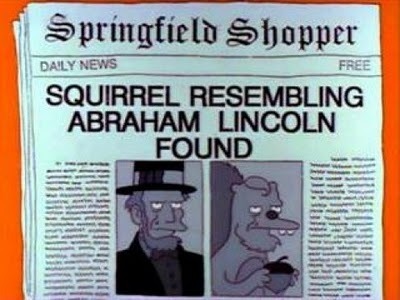 The shame spiral continues at the parent company of the "once-proud Los Angeles Times"TM. Lee Abrams has been dumped from the Tribune Co. for sending a company-wide e-mail that included nude video sluts, and his boss and stalwart defender, Randy Michaels, is supposedly on his way out as well. It's somehow fitting, and yet galling, that it took an article in the New York Times for the Tribune board to realize Michaels and Abrams were horrifically incompetent at their jobs.
The shame spiral continues at the parent company of the "once-proud Los Angeles Times"TM. Lee Abrams has been dumped from the Tribune Co. for sending a company-wide e-mail that included nude video sluts, and his boss and stalwart defender, Randy Michaels, is supposedly on his way out as well. It's somehow fitting, and yet galling, that it took an article in the New York Times for the Tribune board to realize Michaels and Abrams were horrifically incompetent at their jobs.
There are still people out there — like my friend Bill Heisel, or the Center for Public Integrity, or Village Voice/New Times, or California Watch — who are still doing the hard work of actual reporting. But I don't envy them.








October 18, 2010
Bigfoots of the World, Unite
My interview with Minnesota Public Radio's Kerri Miller is here on the MPR website. Also, you can now pre-order the paperback of BLOOD OATH, and pre-order the sequel, THE PRESIDENT'S VAMPIRE. And let's not forget the stylish merchandise you can grab at Zazzle.
OK. That's it for the message from our sponsors. Now, the news:
Meet the new boss, same as the old boss: Tea Party Senate candidate has reporter cuffed for asking questions at public event.
Twenty-eight songs from Thomas Pynchon's Gravity's Rainbow.
Why TV is so great and movies are so bad right now.
Creepier than Cloverfield: Video of mysterious sea creature. (Begins at 1:30.)
Guide to Bigfoots around the world.









